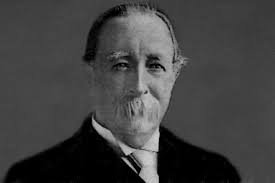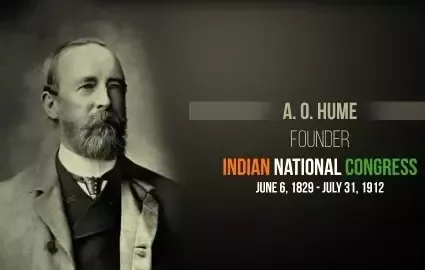The First President of the Indian National Congress
Introduction to the Indian National Congress
The Indian National Congress (INC) was founded in 1885 and played a pivotal role in India’s struggle for independence. As one of the oldest political parties in India, it has a rich history and has seen numerous leaders who shaped its course and the country’s destiny. The role of the President of the INC has been crucial in guiding the party through its various phases, from its early days to its central role in the independence movement.
Allan Octavian Hume: The First President
The first President of the Indian National Congress was Allan Octavian Hume, a British civil servant and a prominent figure in Indian political history. Hume, who was deeply involved in the Indian reform movement, was chosen to lead the inaugural session of the INC in 1885. His selection was pivotal as it marked the beginning of a new era of political organization in India.
Contributions of Allan Octavian Hume
Hume’s presidency was marked by his efforts to organize and formalize the INC, setting the stage for its future as a major political force. He worked towards fostering a sense of unity among the Indian population and aimed to provide a platform for addressing various issues facing the country. His vision and leadership helped lay the foundation for the INC’s subsequent role in the fight for independence.
Impact on Indian Politics
Hume’s tenure as the President of the INC was significant in the context of Indian political history. His leadership provided the party with a structured approach to political activism and laid the groundwork for future leaders to build upon. The INC under his guidance began to emerge as a formidable entity in Indian politics, setting the stage for its future role in the freedom struggle.
Legacy of the First INC President
Allan Octavian Hume’s legacy as the first President of the Indian National Congress is remembered for his contribution to the organizational structure of the party and his role in India’s early political awakening. His efforts in bringing together various sections of Indian society under the banner of the INC were instrumental in shaping the party’s direction and influence.

Why this News is Important
Historical Significance
The appointment of Allan Octavian Hume as the first President of the Indian National Congress represents a critical moment in Indian political history. It signifies the beginning of a structured political movement that would eventually lead to India’s independence. Understanding this historical context helps students grasp the evolution of political organizations in India and their role in the country’s freedom struggle.
Foundation for Future Leadership
Hume’s presidency marked the establishment of a platform for future Indian leaders. His efforts in organizing the INC and promoting political engagement provided a model for subsequent leaders, including key figures in the independence movement. This foundation was crucial for the growth of Indian political activism and the eventual formation of a democratic India.
Insight into Political Organization
Studying Hume’s role provides insights into the early organizational strategies of political parties. It highlights the importance of leadership in shaping the structure and direction of political movements. For students, this knowledge is valuable in understanding how political organizations evolve and influence national policies.
Historical Context: Background Information
Formation of the Indian National Congress
The Indian National Congress was founded in December 1885 by Allan Octavian Hume and a group of prominent Indian leaders. The formation of the INC was a response to the need for a unified platform to address the political and social issues facing India under British rule. The party aimed to promote political dialogue and reform within the colonial framework.
Allan Octavian Hume’s Role
Hume, a retired British civil servant, played a crucial role in the formation of the INC. His involvement was driven by his commitment to Indian reform and his belief in the potential of Indian political engagement. Hume’s leadership during the early years of the INC helped establish its credibility and organizational structure, setting the stage for its future role in Indian politics.
Evolution of the INC
Over the decades, the INC evolved from a moderate reformist organization to a central player in the Indian independence movement. It became the primary political force advocating for self-rule and independence from British colonial rule. The INC’s journey from its early days under Hume’s leadership to its pivotal role in achieving independence reflects its significant impact on Indian history.
Key Takeaways from the First President of the Indian National Congress
| Serial Number | Key Takeaway |
|---|---|
| 1 | Allan Octavian Hume was the first President of the Indian National Congress. |
| 2 | Hume’s leadership marked the beginning of a structured political movement in India. |
| 3 | The INC was founded in 1885 with the aim of addressing political and social issues in British India. |
| 4 | Hume’s presidency provided a foundation for future Indian leaders and political activism. |
| 5 | The INC evolved from a reformist organization into a central force in the Indian independence movement. |
Important FAQs for Students from this News
1. Who was the first President of the Indian National Congress?
- Allan Octavian Hume was the first President of the Indian National Congress, serving at its inaugural session in 1885.
2. What was the primary role of Allan Octavian Hume in the formation of the Indian National Congress?
- Allan Octavian Hume was instrumental in organizing and formalizing the INC, helping to lay the groundwork for its future role in Indian politics.
3. How did Allan Octavian Hume’s presidency influence the Indian National Congress?
- Hume’s presidency helped establish the INC’s organizational structure and provided a platform for future leaders to build upon, influencing its role in the Indian independence movement.
4. What were the goals of the Indian National Congress when it was first founded?
- The INC aimed to address political and social issues under British rule, promote political dialogue, and advocate for reforms within the colonial framework.
5. How did the Indian National Congress evolve after Allan Octavian Hume’s presidency?
- The INC evolved from a moderate reformist organization into a major political force advocating for self-rule and independence, playing a central role in India’s freedom struggle.
Some Important Current Affairs Links


















